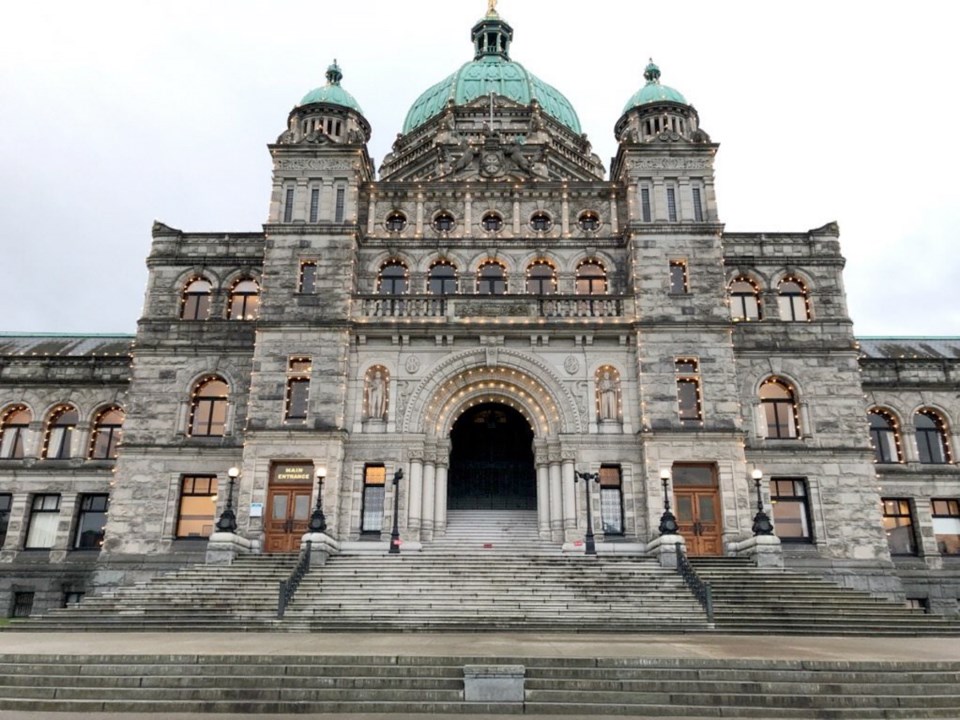Just when you thought it couldn’t get any more complicated, the NDP government this week added another wrinkle to an income assistance issue that’s been a nagging problem for months.
The move is pretty straightforward — the rates are being increased, permanently, across-the-board. But it came after months of arguments, complaints and political pressure from welfare advocates and recipients about earlier measures designed to help people through the pandemic crisis.
They all centred on the temporary nature of the relief. The situation shows how temporary moves can backfire on a government. They’re welcomed when they are announced, but the criticism when they come to an end almost overshadows the initial favourable response.
The B.C. Liberals went through a mirror image of something similar several years ago. That government imposed a temporary surtax on high-income earners. Then when it came to its scheduled end, NDP critics spent months slamming the B.C. Liberals for giving “the champagne and caviar set” a tax break.
For the income assistance issue, the word “temporary” is easy to overlook when the money is so badly needed. The government must have realized that early on, because it spent most of the year extending the program.
It started last April as a $300-a-month extra pandemic emergency benefit that was going to run for three months. Then it was extended for another three months, then extended again.
It wound up running the calendar year and over that time the government realized that letting it lapse was a losing proposition.
It was reduced to $150-a-month starting in January, which prompted many complaints. It is to be eliminated by the end of this month, which prompted more. Premier John Horgan told the house in December the cut was only “so we could get into the budget process and make any increases permanent in the years going forward.” That didn’t seem to placate anyone.
Opposition Liberals had a stock of letters from people upset at the reduction and have been reading them into the record. The issue prompted several exchanges in the legislature last December during which the government insisted the cut wasn’t really a cut.
Up until this week’s news of a general hike, the government was responding by citing the one-time COVID-19 relief grant of up to $500 per individual as an offset to the income assistance cut.
Bringing that and some other income assistance modifications into the equation allowed Social Development Minister Nicholas Simons to say people on income and disability assistance would come out ahead.
Welfare clients were initially expected to apply for the relief grant, which would have been problematic for some, but the government flipped on that last month and made it automatic for those recipients.
The December arguments in the house resumed this week, when Liberal critic Dan Davies keyed off an online rally against the cuts that was organized and rapped the “heartless” premier for taking $300 a month away from people who most need it.
The NDP spent years slamming B.C. Liberal reluctance to increase assistance payments, so having the tables turned didn’t sit well with Horgan and others.
“Do some history, man,” Horgan snapped. “You did nothing for a decade.”
Simons sarcastically congratulated the Opposition on their “newfound interest in the lives of people who live in poverty.”
In Horgan’s version: “We didn’t cut the program. We created the program.”
Hours later, the permanent hike in the rate was unveiled.
It’s hard not to see a link between the complaints about the end of the temporary grants and the permanent increase in the basic rate. Starting next month, the basic amount will be $175 bigger than previously. The new rate for individuals will be $935 a month, $1,358 for disabled single people and more for families.
After a year of argument and concern about the earlier temporary benefits, the first word in the announcement Tuesday was “permanent.” That was duly noted by advocates.
So the $300-a-month extra benefit lapsed in December. The $150-a-month benefit since January ends this month. Next month the basic rates go up $175. Clients, like most everyone else in B.C., will have had the benefit of the one-time relief cheque for up to $500 per individual.
It’s the biggest single increase in the rate, but it took a long, complicated route before it arrived.



